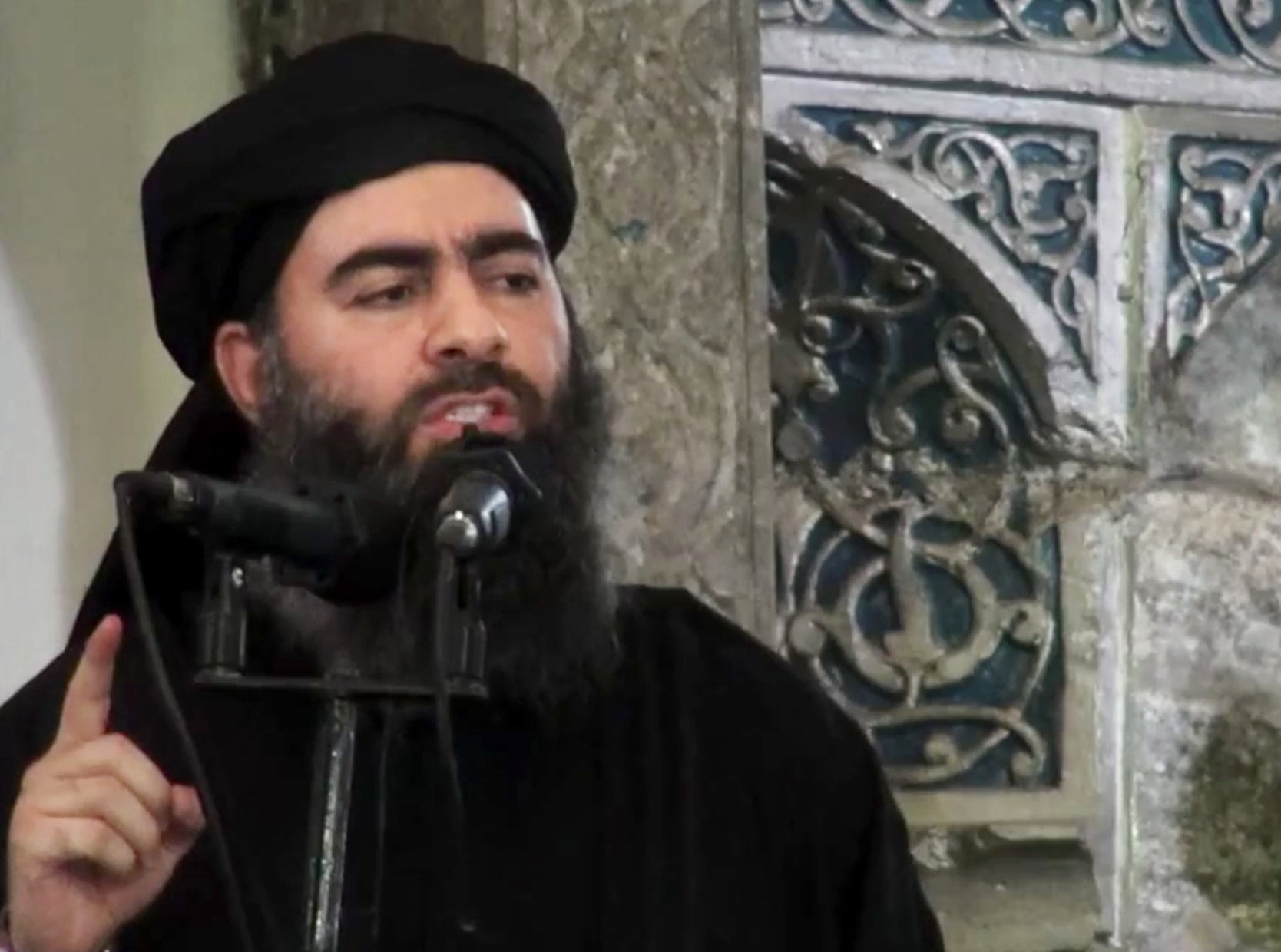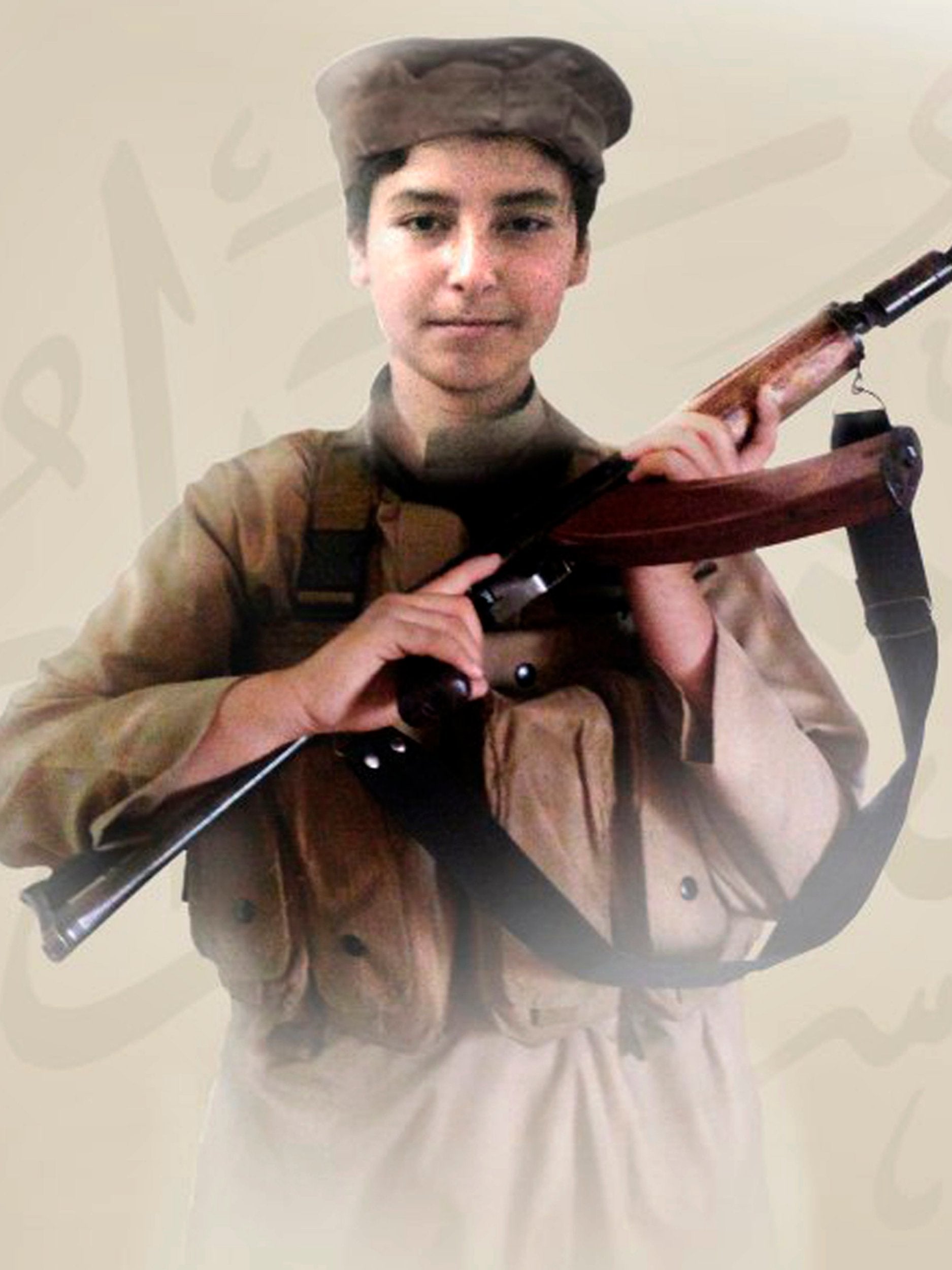Isis leader Baghdadi's son killed in Syria, terror group claims
Death likely to be used as propaganda to boost group's morale, researcher says

A son of the leader of Isis has been killed fighting Syrian government forces, the terror group has said.
The death of the young son of Abu Bakr al-Baghdadi appeared on the group’s social media accounts and included a picture of a young boy carrying a rifle.
The statement, which was dated this month, said Hudayfah al-Badri was an elite fighter, known as an “inghimasi”, who was killed fighting Syrian and Russian troops at a power station in central Homs province.

“Hudayfah al-Badri... the son of the Caliph... was killed in an operation against the Nusayriyyah and the Russians at the thermal power station in Homs,” the statement said. The word “Nusayriyyah” refers to Syria’s Alawite community, of which the country’s president, Bashar al-Assad, belongs.
Badri’s death is likely to be used by Isis as propaganda to boost morale according to Amarnath Amarasingam, a senior research fellow at the Institute for Strategic Dialogue.
"Judging from the photo released by the Islamic State, Baghdadi’s son seems very young, and judging by how Isis supporters reacted online, it served as an important propaganda argument for them,” he told The Independent.
“Many supporters were saying things that they were lucky to have a leader that would sacrifice his own son in this way, even as Isis was losing territory and even as they weren’t as strong as they were back in the day.
“In other words, he is continuing the fight, and therefore so should we.”
He added: “I think the very fact that they made a big deal out of it shows that they understand its propaganda value – for boosting morale and hopefully keeping members of their ranks in the fight.”
Shiraz Maher, director of the International Centre for the Study of Radicalisation (ICSR), said propaganda surrounding the death allows Isis to "double down on the so-called bona fides of Baghdadi as a warrior scholar who's led this caliphate, who's been a leader, who's lived with his people. That's always been the impression they've tried to project."
He added: "Principally it's a bit of a show of the idea that these guys are willing to sacrifice their own kids."
Describing the "inghimasi", Mr Maher said: "These guys are basically kamikaze warriors, they are going and plunging themselves into the midst of the battle with the enemy and fighting until they are killed."

The Britain-based Syrian Observatory for Human Rights, which monitors the war, said the most recent Isis operations in the area mentioned were in the first two weeks of June.
Baghdadi’s whereabouts remain unknown and he has been reported killed or wounded on a number of occasions, but the wording of the release “suggests that he is still alive”, Mr Amarasingam said.
“It says, for instance, ‘may Allah safeguard him’, which suggests that he might still be alive. But, it is unclear where he could possibly be.”
Baghdadi declared the formation of Isis’ caliphate from a mosque in Mosul in 2014, after leading his fighters on a sweep through northern Iraq.
Little is known about Baghdadi’s family, but a woman and a child who were said to be his wife and daughter were detained in Lebanon in 2014.
His last message came in the form of an undated 46-minute audio recording, released via the al-Furqan news organisation in September, in which he urged Isis followers across the world to wage attacks against the West and to keep fighting in Iraq, Syria and elsewhere.
The death of his son potentially deprives him of an heir, according to Raffaello Pantucci, director of International Security Studies at the Royal United Services Institute for Defence and Security Studies (RUSI).
He said the death could serve to inspire the group further, "and highlight how the many young cubs of the caliphate are useable as terrorist tools, something which people may have worried about. But such a clear leadership signal on this topic will bolster people's use of them as potential attackers".
He added: “Ultimately, he was a child and his death means that Baghdadi no longer has one of his sons, but beyond his immediate battlefield impact it is not large.
"It is a very strong signal by Baghdadi that he is still deeply committed to this cause and the group, something that some of his followers might have begun to question as the group seemed to retreat into hiding."
Isis has been driven from nearly all the territory it once controlled in Syria and Iraq, though it still maintains a presence in the Syrian desert and remote areas along the border.
Join our commenting forum
Join thought-provoking conversations, follow other Independent readers and see their replies
Comments
Bookmark popover
Removed from bookmarks